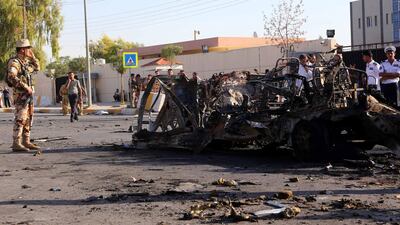A rare terrorist attack last year belies the stability of the north
It has been almost four months since the bombing of a security headquarters in Erbil left six soldiers dead and shattered six years of relative peace in the Iraqi Kurdish capital.
For those involved in helping international companies move into the Kurdistan Region of Iraq (KRI), the September 29 bombing had the potential to throw a spanner in the works. Although swiftly dealt with by the Kurdish police, the incident undoubtedly called into question Erbil’s status as a haven compared with the chaotic south of Iraq.
Ed Carnegy, the managing director of IKG Property, admits some clients reviewed security planning in the wake of the attack, but the effect has not been quite as dramatic as might be expected.
“The incident is generally viewed as a one-off and the city is very much back to business as usual. We have not seen a dampening effect on business activities,” he says.
Despite KRI being perceived as a safe and secure area, Mr Carnegy says security has always been high on the agenda for multinational companies, as would be expected in any frontier market. Perhaps because of this, the risk factor associated with Erbil is already built into most clients’ plans.
“New York, London, Madrid and Mumbai have all suffered terrorist incidents within recent memory. Each incident is a tragic waste of life but each city remains an international business hub,” says Paul Bailey, the managing director of Definitus, an Erbil-based investment company.
“The September bombings in Erbil were a sad reminder that there will be factions that try to derail the Kurdistan region and its emerging success, but also evidence that the [Kurdistan Regional Government] authorities are able to contain such attacks, combat and later capture the perpetrators.”
Indeed, the quick actions of the security forces in identifying the bombers and preventing further loss of life was praised by the Kurdish president Nechirvan Barzani, who added that they had foiled a number of similar attacks in recent years. In Erbil and Sulaymaniyah, KRI’s two main cities, the increase in security following the attack was palpable, with long queues at checkpoints to the south and a notable increase of soldiers on the streets in November.
Mr Bailey admits those thinking of making their first entry to the region last year and this might have postponed their plans.
“Those who are committed to the KRI, that have already invested here and will be here for the medium and long term, will not be dissuaded by the recent events,” he says.
“But for those who had resolved to visit at some point but who are not yet here yet? Yes, it is conceivable that [they] get postponed for a while longer.”
business@thenational.ae

